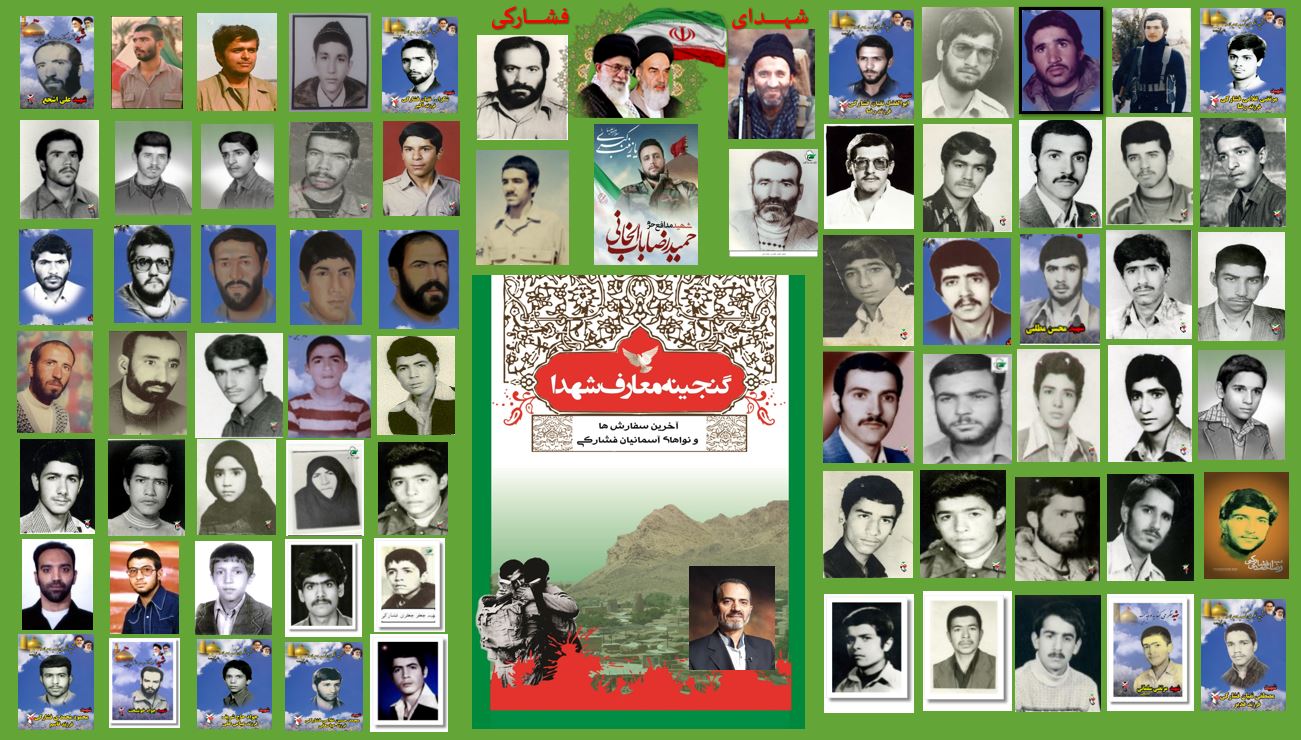تأثیر آموزش برنامه ریزی شده براضطراب خانواده بیماران بستری دربخش مراقبت های ویژه بیمارستان های دانشگاه علوم پزشکی اصفهان در سال 1388
يكشنبه, ۱۸ شهریور ۱۳۹۷، ۰۶:۵۰ ق.ظ
دکترمحمد فشارکی

تأثیر آموزش برنامه ریزی شده براسترس خانواده بیماران بستری دربخش مراقبت های ویژه بیمارستان های دانشگاه علوم پزشکی اصفهان در سال 1388 | |
|
مقاله 3، دوره 3، شماره 4 - شماره پیاپی 9، تابستان 1388، صفحه 18-24 اصل مقاله (234 K) | |
| نویسندگان | |
| فرحناز بهرامی* ؛ محمد اسلامی؛ زهرا مشتاق عشق؛ محمد فشارکی | |
| چکیده | |
| خلاصه زمینه و هدف: بستری شدن یک بیمار دربخش مراقبت های ویژه، استرس روانی اجتماعی زیادی را برای او و خانواده به دنبال دارد. مراقبت ازاسترس خانواده، جزء کاملی ازمراقبت پرستاری دربخش مراقبت های ویژه می باشد. هدف ازانجام این مطالعه، تعیین تأثیرآموزش برنامه ریزی شده درطی چند روز اولیه بستری بیمار در بخش مراقبت های ویژه، براسترس خانواده بیماران بوده است. مواد و روش ها: این پژوهش، یک مطالعه نیمه تجربی است که بر روی 96 نفر از خانواده بیماران بخش مراقبت های ویژه بیمارستان های دانشگاه علوم پزشکی اصفهان، دریک دوره سه ماهه و به روش نمونه گیری احتمالی متوالی انجام گرفت. آموزش انفرادی براساس نیازهای روانی اجتماعی خانواده بیماران، به منظور کاهش استرس آنان توسط پرستار بخش ویژه، انجام گردید. نیازهای روانی اجتماعی و استرس خانواده بیماران قبل وبعد از آموزش، سنجیده ومقایسه گردید. ابزارگردآوری داده ها مشتمل بر پرسشنامه سه قسمتی بود که قسمت اول شامل خصوصیات دموگرافیک، بخش دوم سنجش نیازهای روانی اجتماعی خانواده بیماران بخش ویژه ( CCFNI ) و قسمت سوم پرسشنامه سنجش استرس خانواده که برداشتی ازدو پرسشنامه DASS و IES بود. تجزیه وتحلیل اطلاعات با استفاده از نرم افزار SPSS و آمار توصیفی و تست های آماری تی و پیرسون انجام گرفت. یافته ها: میانگین نیازهای روانی اجتماعی خانواده بیماران در قبل و بعد از آموزش به ترتیب 6/2 ± 44/65 و 3 ± 43/42 بود که اختلاف معنی داری را نشان داد(000/0= p ). سطوح نیازهای اکثر نمو نه ها(7/70درصد) درقبل ازآموزش، در حد متوسط بود که این آمار به طرز معنی داری پس از آموزش به 100 درصد رسید(000/0= p ). بالاترین میانگین نمره نیازها در قبل و بعد از آموزش، به ترتیب اهمیت در حیطه های اطلاعات، حمایت و ملاقات بود. میانگین استرس خانواده بیماران درقبل وبعد از آموزش، به ترتیب 7/9 ± 06/86 و 8/6 ± 3/43 بود که از نظر آزمون تی، معنی دار گزارش شد(000/0= p ). سطوح استرس در 98درصد خانواده ها در قبل ازآموزش، در حد زیاد بود ولی بعد از آموزش، سطوح استرس در 7/92درصد خانواده ها در حد متوسط گزارش گردید(000/0= p ). بحث ونتیجه گیری: نتایج پژوهش، مؤید آن است که آموزش برنامه ریزی شده در چند روز اولیه بستری بیمار، برکاهش استرس خانواده ها مؤثر بوده لذا ارزیابی جامع و فراگیر از نیازهای روانی اجتماعی اعضاء خانواده، بایستی به عنوان راهنمای پرستاران جهت برنامه ریزی مداخلات در کاهش استرس آنان مدنظر قرار گیرد. | |
| کلیدواژهها | |
| نیاز روانی اجتماعی؛ استرس؛ خانواده؛ پرستار؛ بخش ویژه؛ آموزش | |
| عنوان مقاله [English] | |
| Effects of programmed education on stress of family careers with a relative in an intensive care unit of Isfahan University of Medical Sciences hospitals during 2009 | |
| نویسندگان [English] | |
| F Bahrami؛ M Islami؛ Z Moshtagh Eshgh؛ M Fesharaki | |
| چکیده [English] | |
|  Background and Objective: Critical illnesses and subsequent hospitalization of a relative in an intensive care unit (ICU) leading many psycho-social stresses for patients and their family members. Managing of the stress among families is an integrate part of critical care nursing. Therefore, this study was conducted to determine the effects of a programmed education, provided during the first few days of patient's hospitalization on stress of the family carers in Isfahan hospitals of medical science university.  Material and Methods: This is a quasi- experimental study, performed on 96 primary family members of each critically ill patient who had been newly admitted to Isfahan hospitals recruited by a sequential random sampling over a period of three months. All of patient's family were trained psychosocial need-based to alleviate their stresses by an ICU nurse. Stress levels and scores were measured and compaired before and after education, using a three part questionnaire, including demographic, critical care family need inventory (CCFNI) and stress. The third part of questionnaire was designed based on the IES and DASS questionnaires. Tests of T and ANOVA were used by SPSS software, for data analysis.  Results : Our results showed that, the mean family psychosocial need scores of the before and after education were 65.44 ± 2.6 and 42.43 ±3, respectively, with a significant difference (p=0.000). T he majority family psychosocial need levels of the before education were (70.7%) , and the after education were (100%) needs with a significant difference (p=0.000). M ost significant family reported is the need for information (90.7 ±6.3 ) for supportative (75.2 ±5.5 ) and proximity (67.7 ±6.3 ). Mean stress scores of the before and after education were 86.06 ± 9.7 and 43.3 ±6.8, respectively with a significant difference (p = 0.000). The level of stress before and after education was 98% and 92.7% respectively which the difference was significant (p=0.000).  Conclusion: The reduction of family stress in this study support the effectiveness of providing families of newly admitted critically ill patients, with a need based education intervention to reduce stress, Therefore, probably planned educational programmes for the family members regarding psychosocial needs by nurses are important. Findings of this study possibly serve as guidance for nurses in delivering competent interventions. | |
| کلیدواژهها [English] | |
| Psychosocial need, Stress, Family, Nurse, ICU, Educat http://chj.rums.ac.ir/article_45609.html | |

